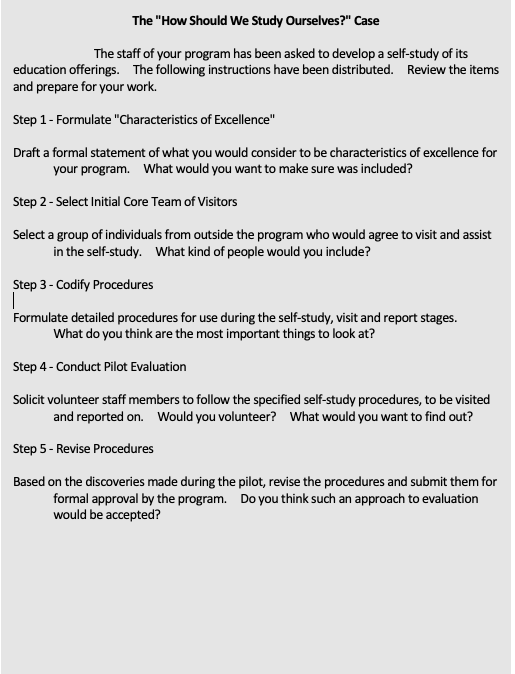DATE: January 11, 2001
TO: See list below
FROM: John Garvey
RE: Literacy Development of High School Students
______________________________________________________________________________
I am writing to invite you to a meeting to discuss the current status of literacy education in New York City’s high schools and to discuss the possibility of developing a comprehensive and integrated approach to expanding and strengthening instruction in that area.
It seems clear that only a relatively small minority of entering ninth graders already possess the kinds of skills that are required in high school. The majority of students possess skills that range from minimal to almost adequate. At the same time, there is little in the high school curriculum, in either its traditional or alternative formats, that would explicitly address the issue of reading development. In that light, we believe that a distinctive contribution of the College Now Program would be to identify and/or develop those resources from the University, the Board of Education and other institutions that might be brought together to promote the possibility that students will be able to do two things at once–develop skills and acquire knowledge.
I am attaching a brief background document which explains why we are undertaking this effort and suggests some initial projects we might consider. We will not be surprised to discover that important work is already going on in one or more of those areas and we look forward to learning about the work you are already involved in. In addition, it is likely that you might have additional suggestions for work we might do together.
The initial meeting has been scheduled for ______________________.
Please RSVP at ____________________.
If you have any questions concerning this invitation, please call me at 212-794-5747 or write to me at jbgbh@cunyvm.cuny.edu.
Literacy Education in the High Schools
The City University of New York’s collaboration with the Board of Education on the College Now Program is intended to enable high school students to meet graduation requirements and, in the case of those who wish to go on to post-secondary study, to be prepared to do college-level work upon enrollment without need for remediation. While we recognize that it is essential for students to pass courses and Regents examinations, we also realize that it is essential that students develop relatively high levels of proficiency in reading and writing.
During high school, they must become able to read well enough so that they can understand, interpret and make critical judgments about textbooks and other materials used in their high school courses and to write well enough so that they can respond in writing on a wide variety of topics and in a range of different forms and genres. If and when they choose to go on to college, they will have to be able to read more texts in less time and to read them with an even more advanced critical disposition.
There are several substantial projects that would allow us to develop more effective forms of literacy instruction for high school students. Those projects are the following:
1. Develop a profile of the reading skills of high school students in different grades.
Such a profile would allow us to estimate the extent of the need for reading development among high school students (probably ranging from extensive to modest). In addition, it would enable all those who work with high school students to recognize indicators of the relative reading proficiency that a particular student demonstrates by his/her reading behaviors and to plan for the most appropriate instruction.
2. Develop a thorough understanding of the demands of texts typically used in high school courses and of the assignments typically given in relation to those texts.
We need to know how hard different types of texts are and why they are hard. Are they hard because of the prior knowledge that is required to understand them or are they hard because of the distinctive styles used by those who write literature as compared to social science or physical science? Are they hard because they’re badly written?
3. Develop a realistic estimate for how long it will take, given reasonably effective instruction, for students who are reading at different levels of proficiency to develop the skills required to read texts written at more advanced levels and to complete typical assignments related to those texts.
A comparison of the varied levels of reading proficiency revealed by the profile of students’ skills with the difficulties posed by characteristic texts and assignments would allow us to develop a realistic estimate for how long it might take for students who are reading at different levels of proficiency to develop the skills required to handle the texts used at more advanced levels of difficulty. This will seldom be an all or nothing question since students might very well be able to handle some texts if they are provided assistance that they would not have been able to handle on their own.
4. Provide support for teachers in every subject area to become more familiar with reading development (especially as it might take place in adolescents who have not developed adequate reading skills prior to high school) and to explore ways in which they might be able to support reading development through classroom activities, assignments and responses to student work.
It is not likely that teachers in the different subject areas (even in English) will become reading experts. It would therefore be valuable to provide them with practical ways of thinking about the materials they use, the assignments they give and the ways in which they respond to student difficulty. We might also support the work of teachers in different subject areas who are already interested in incorporating reading and writing activities into their courses.
In the case of literacy education in the high schools, as in many others, there is no shortage of very good ideas or very talented and committed people. Our initiative is intended to bring those good ideas and talented and committed people together.



Leave a Reply